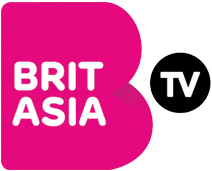Love Island viewers have made 1,509 complaints to the media regulator, Ofcom, over allegedly misogynistic behaviour by male contestants towards their female counterparts.
Viewers were upset by a “snog, marry, pie” challenge, in which the show’s participants revealed who they would kiss, marry or hit in the face with a cream pie. The dancer and model Tasha Ghouri was left in tears over comments that Dami Hope and Luca Bish made before delivering a pie to her face.
The show has faced continued scrutiny for how it treats participants and looks after their mental health, with ITV dialling down some of its more extreme elements. Women’s Aid has already confirmed it is in talks with ITV after viewers expressed concern over “misogyny and controlling behaviour” on the show.
Ofcom has received other complaints related to incidents allegedly involving misogynistic and bullying behaviour.
It said in a statement: “We are assessing the complaints against our broadcasting rules, but are yet to decide whether or not to investigate.”
Complaining to Ofcom about Love Island has become an annual ritual for many fans of the reality show, keeping the regulator busy during the summer months.
It maintains a public list of all commercial television and radio programmes that receive more than 50 complaints, which indicates a large level of public dissatisfaction. Only 14 programmes have hit that threshold in the last two months – and 11 of them were episodes of Love Island.
None of them have so far resulted in the regulator opening formal investigations, echoing previous years when large numbers of people complained about Love Island but there was rarely an actual breach of the broadcasting code.
Ofcom has largely stopped publishing running totals of public complaints, amid concerns it created news cycles based on outrage.
ITV previously said: “We cannot stress highly enough how seriously we treat the emotional wellbeing of all of our islanders. Welfare is always our greatest concern and we have dedicated welfare producers and psychological support on hand at all times, who monitor and regularly speak to all of the islanders in private and off camera.
“Ahead of this series, contributors on the show were offered video training and guidance covering inclusive language around disability, sexuality, race and ethnicity, behaviours and microaggressions.”



